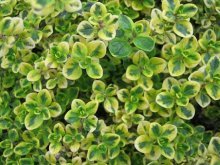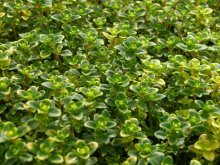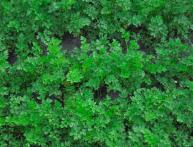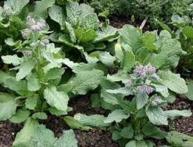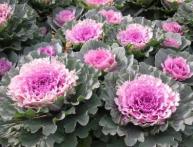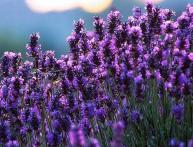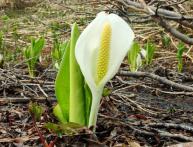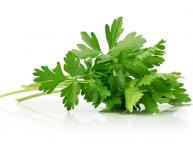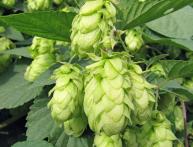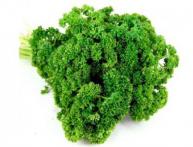Lemon thyme and its beneficial properties, where the plant is used
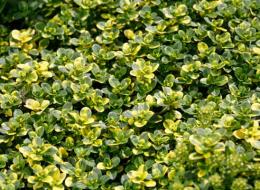
Thyme (Thymus), or thyme as it is also called, is a shrub, a plant that has spicy and aromatic qualities. Translated from Latin, thyme means “fragrant plant.”
Most favorable for growth and development of thyme in temperate and subtropical climates. In Russia you can find more than 120 species of this plant.
Content:
Origin of thyme
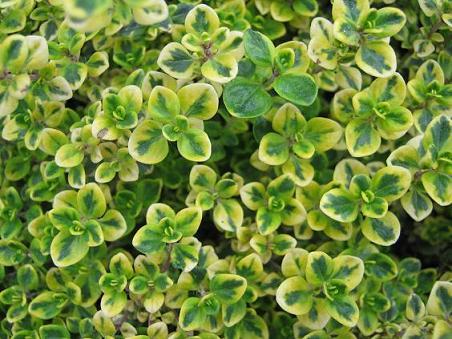
Thyme grows actively in many European countries, in North America, some species can even be found in Greenland.
In Ancient Egypt, this shrub was used for embalming, and in Ancient Greece, thyme was used as an antiseptic to treat various diseases. Also, in Greece, it was thyme that was used to fumigate the temple of Aphrodite.
The ancient Greeks treated this herb with special respect and considered it a herb for real men. Therefore, before military battles, almost all soldiers took a bath with thyme added to it.
In Scotland, before battle and during rest, men drank tea with the addition of thyme to gain strength and continue military operations. Avicenna was the first to describe the beneficial qualities of this plant.
Seeds thyme was included in many medicinal preparations based on honey, vinegar and oil.Modern medicine has confirmed the fact that thyme helps to improve mental balance and restore strength.
But you should not use this substance in large quantities, since the components included in its composition can irritate the mucous membrane of the stomach and intestines. Therefore, people with diseases of the gastrointestinal tract, liver and kidneys should be especially careful when using thyme in their diet.
Lemon thyme in cooking
The upper part of the plant stem, on which the leaves are located, is used in cooking as a spice. Many culinary experts use fresh leaves to prepare their dishes, however, if this is not possible, you can limit yourself to dry thyme.
A tablespoon of fresh thyme, finely minced, equals 1 teaspoon of dry spices. Depending on the degree of maturity of the plant, its aroma can vary from a slightly noticeable lemon trail to a sharp and bright smell of citric acid.
In cooking, thyme is used to add a slight bitterness, aroma and piquant taste to dishes. Thyme is also used as an additive in the preparation of meat dishes, vegetables, eggs, cheese, etc. Adding a small amount of thyme to legume dishes will immediately give them a new, fresh and unexpected flavor.
Thyme is a good preservative of natural origin, so it is actively used in the food industry for the preparation of marinades and food additives to extend the shelf life of products.
When pickling tomatoes and cucumbers, you can add a small amount of fresh thyme leaves, which will give the dish a special taste.The spice can be used as a finishing touch when preparing soups and stews. from vegetables.
Thyme is a seasoning that is also used in the alcohol industry. It is added in small quantities to give alcoholic drinks a more tart and bitter taste.
Useful properties and contraindications
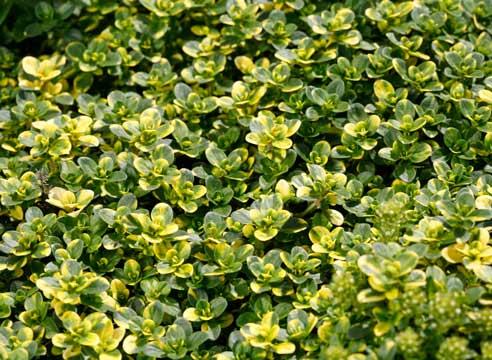
Thyme is also used as a medicinal tincture for the treatment of acute and chronic bronchitis, pneumonia, and upper respiratory tract diseases.
Thyme can be used to treat diseases of the oral cavity, gynecological pathologies, gastrointestinal disorders and heartburn.
The use of compresses and baths with the addition of thyme will relieve acute pain in the joints due to rheumatism, and will have a medicinal effect in the treatment of gout and bruises.
Infusions from thyme are also used in cosmetology, since the components included in thyme have a beneficial effect on the scalp and face, relieving seborrhea and acne.
Thyme essential oil contains a large amount of a component such as thymol, so this plant has a number of contraindications:
- any kidney or liver diseases
- gastritis and peptic ulcer
- increased blood pressure
- disorders of the cardiovascular system
- individual intolerance to this seasoning
During pregnancy and breastfeeding, it is also not recommended to use thyme. If you have high blood pressure and body temperature, thyme should not be taken even in minimal dosage, as this helps to warm up the body.
When thyme is consumed in large dosages, symptoms such as vomiting and nausea may occur. Dried thyme leaves must be stored in a well-closed package, otherwise all the beneficial qualities of the plant will quickly disappear, and there will be no point in adding thyme in cooking.
It is best to use glass containers or aluminum foil packaging for storage. Lemon thyme is a special type of spice that does not lose its taste and aroma during cooking.
Not every seasoning can boast of such properties. In cooking, thyme can also be used in combination with other seasonings.
How to plant lemon thyme:
Interesting information about the vegetable garden

